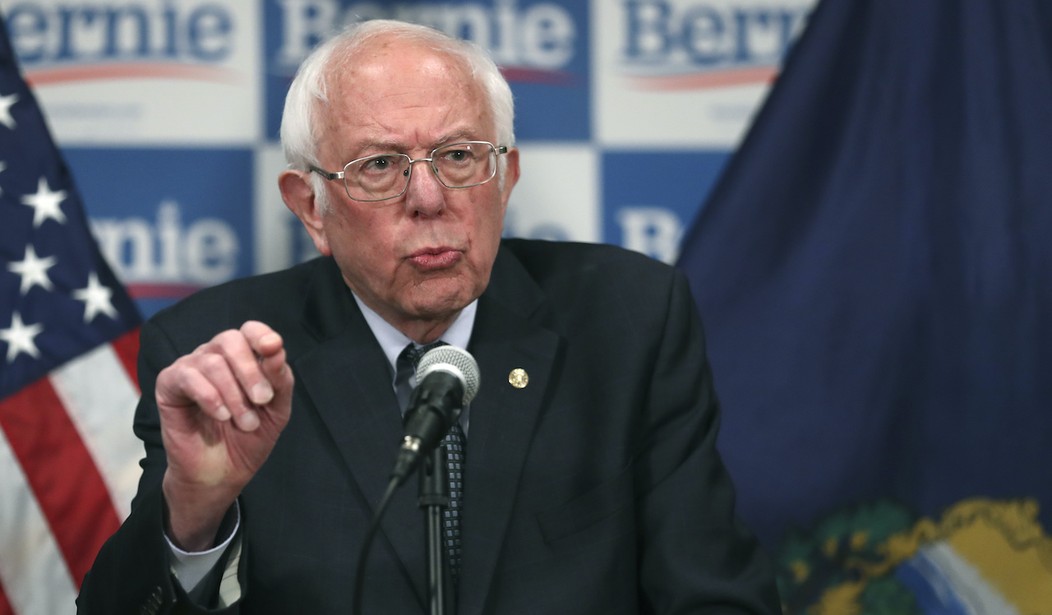Aww, I gave away the answer, didn’t I? After months of insisting that half a loaf is worse than none at all, suddenly progressives seem keen on grabbing a few slices of bread while it’s still possible. Late last night, Democrats suddenly started talking about $2 trillion for their social-engineering bill rather than their previous topline.
Politico hedges its bets by headlining the story, “Dems edge closer to ditching disarray.” Democrats are too good at snatching defeat from the jaws of victory:
Nancy Pelosi and Chuck Schumer’s strategy to force through Democrats’ domestic agenda flamed out spectacularly in September. They’re ready to try it all over again.
With their party’s long-sought priorities on the line, the speaker and Senate majority leader are hustling to clinch a deal as soon as possible that would lock in evasive centrists on a framework for President Joe Biden’s $2 trillion social spending package. That framework, in turn, would free up needed progressive votes for a bipartisan infrastructure bill by Oct. 31.
Two trillion? What happened to the $3.5 trillion that Bernie Sanders and Pramila Jayapal insisted was non-negotiable? Alexandria Ocasio-Cortez recently declared that a line in the sand for progressives. Politico mentions that previous gold standard for the reconciliation bill a grand total of once, and it’s laughable:
Though the odds are still stacked against the party, Democrats say it’s clear there’s a renewed sense of urgency among party leaders. Schumer is nudging his holdouts more than ever before, Pelosi is free from the constraints of an agreement with moderates that imploded and Biden is finally engaged in a meaningful way. Plus, nearly everyone has accepted the bill won’t be $3.5 trillion, as originally proposed.
Oh they have, have they? When did that happen? Just last Friday, Bernie Sanders insisted that the $3.5 trillion price tag was “already a compromise”:
In order to address the long-neglected needs of the working class and combat the existential threat of climate change, we proposed a $6 trillion bill. $3.5 trillion is already a compromise. pic.twitter.com/dU6t3mrN1v
— Bernie Sanders (@SenSanders) October 15, 2021
If Schumer and Pelosi have now cut that down to $2 trillion, then progressives must have caved. And it’s not hard to see why. After all, Joe Biden’s approval ratings are plunging lower than a Vegas dancer’s neckline, and the upcoming midterms look more like an abattoir rather an opportunity for progressives to advance their agenda in 2023-4. The red wave that would result from those numbers might not dent progressive seats too much, but they will find themselves very lonely in their purity.
Perhaps that reality has belatedly dawned on them. House progressive leader Pramila Jayapal tried to put the best spin on the new number after weeks of insisting that she wouldn’t countenance any cuts:
The leader of progressive House Democrats said Tuesday her members had a “really good, productive meeting” with President Joe Biden as the president works to get separate wings of his party to agree to a legislative package between $1.9 trillion to $2.2 trillion for his climate and social safety-net agenda.
“We all still feel even more optimistic about getting to an agreement on a really transformational bill that will fundamentally lift people up,” said Rep. Pramila Jayapal, D-Wash., chair of the House Progressive Caucus. …
Jayapal said Biden is sticking to a topline number between $1.9 trillion and $2.2 trillion, down from his original $3.5 trillion Build Back Better proposal, in a push to gain the support of moderate Democrats.
“Look, it’s not the number that we want. We have consistently tried to make it as high as possible, Jayapal said, but added progressive Democrats are now focused on getting the bill’s social and climate programs jump-started.
The question is whether they’ve caved enough. Joe Manchin has put a number of roadblocks in the way of this massive spending bill, including his opposition to expanding social programs like Medicare and Social Security until they have been shored up in their existing forms. Kyrsten Sinema has insisted all along that she wants a House vote on the bipartisan infrastructure bill before casting a vote to even open debate on the reconciliation bill. Plus, we still haven’t really heard from other Senate Democrats that might be skittish at more social-engineering spending in the middle of an inflationary cycle and a supply-chain crisis — like Mark Kelly, who has to go in front of Arizona voters in the fall to explain why he’s a bigger spender than his progressive colleague Sinema.
If those are still firm positions from Machinema — and others — then this effort will “flame out” again, just as it did last month. Biden might have bought himself some time with his White House meetings this week, but did he buy himself some new math? Stay tuned, and keep the popcorn handy.








Join the conversation as a VIP Member